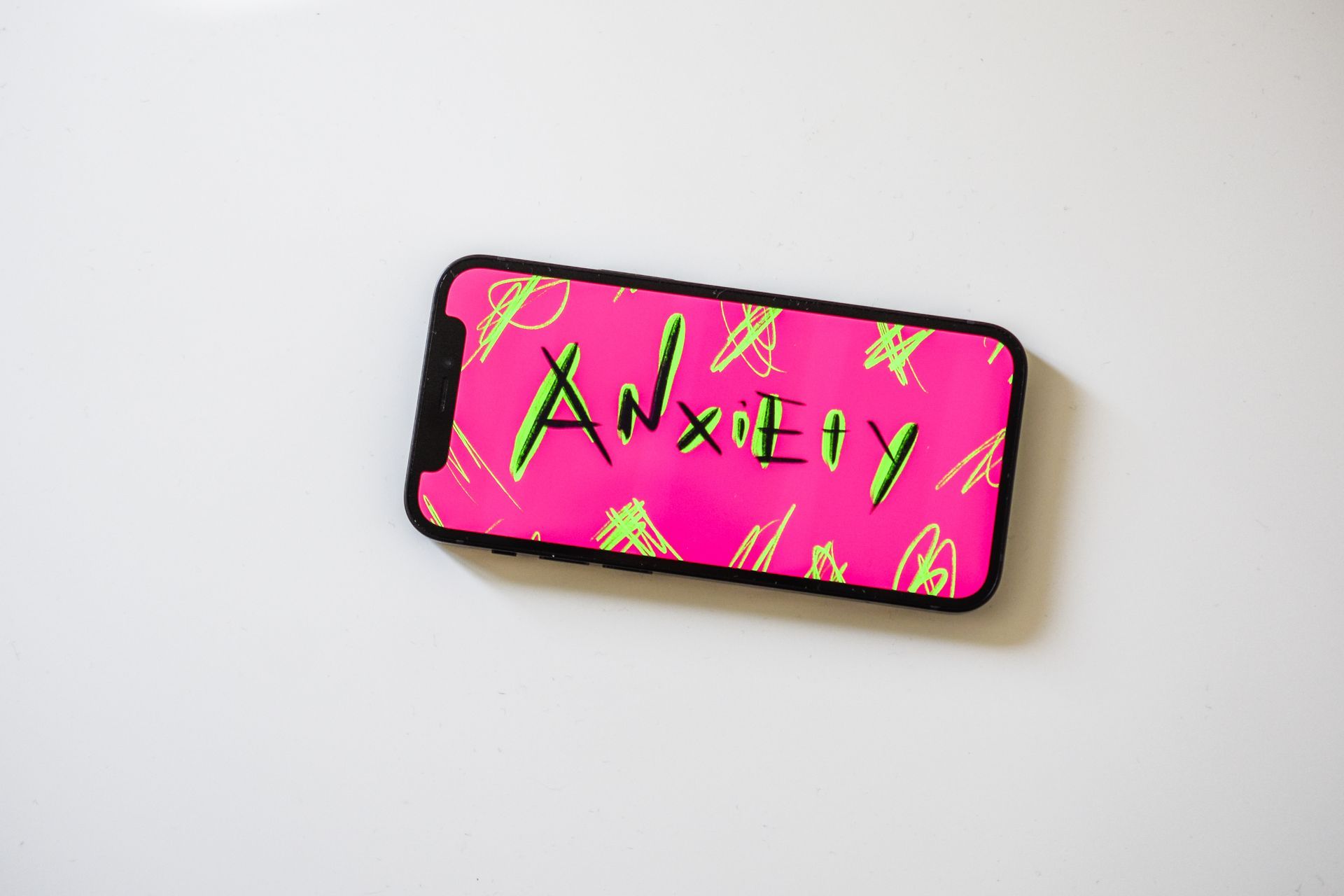When your anxious mind does its finest job keeping you thinking about all kinds of possible catastrophic scenarios that may happen in the future, grounding helps bring you back in the here-and-now.
1. The 5-4-3-2-1 exercise
This exercise
uses your five senses to help you re-focus on the present moment, and away from your thoughts. It is one of the most popular grounding techniques.
Start by taking a few deep breaths. Look around you and name out loud:
- FIVE things you see in the room where you are or outside the window
- FOUR things you can feel (e.g., “the chair against my back”, “the AC blowing cool air on my face”; it’s often easier to start by focusing on things you can touch that are close to you such as the chair you are sitting you, a table in front of you, etc)
- THREE things you hear right now (cars passing by, someone’s voice outside the door, the ticking of a clock, etc)
- ONE thing you can taste (for this one you can grab a piece of candy or gum or take a small bite of food if you have anything handy; if not, think about the taste of your favorite food)
Focusing on your breathing is another way to quiet your mind and stop the endless chatter that keeps your anxiety up.
First, exhale through your mouth. Close your mouth and inhale through your nose to a count of FOUR. Hold your breath to a count of SEVEN. And exhale through your mouth with your lips pursed (as if blowing through a straw), to a count of EIGHT.
Repeat another three times.
If holding your breath this long feels uncomfortable, find a pattern of breathing that works best for you. The key is to maintain the ratio, but the total length of each cycle is less important.
This breathing exercise is one of many. You may use other breathing techniques to help ground yourself when feeling overwhelmed or experiencing intense emotions. If you’ve had success with another technique before, it’s a great time to practice it again!
For instance, you may write:
“Right now, I am going to take a shower”, “I can call my therapist to schedule an appointment”, “Now is a good time to go outside and sit in the sun.”
And then do it. And then move on to the next small thing!
One small thing at a time.
4. Allow your thoughts to come and go
Have you ever noticed how we tend to feel stuck with our thoughts when we feel anxious?
In our worried mind, thoughts just repeat themselves like a broken record. No matter how much we try to ignore them or get rid of them, they come back, louder and more obnoxious each time.
Next time you feel overwhelmed, try something different. Instead of giving your thoughts the cold shoulder, observe them from a distance. Observe your thoughts with a curious mind. Imagine yourself looking at the sky, watching the clouds go by.
Whenever a thought pops into your mind, put that thought on a cloud, and let it float by. Some clouds may go by fast, others may seem to barely move. Just observe the clouds do what clouds do! Observe your thoughts come and go, without trying to respond to them.
5 . Look at an object with a curious mind
Pick a small object next to you and observe it with a curious mind, as if you were seeing it for the first time. Observe its shades and colors, look at the way the light bounces off it. Pay attention to its shape. Notice any patterns, imperfections, dents, holes. Hold it in your hand and notice its weight. Notice its texture under your fingers.
While this exercise can be done with anything readily available, I suggest keeping a small rock or another small object somewhere handy, so that you can reach out for it when you feel the anxiety creep up and you need to calm yourself down.
As you learn new ways to manage your anxiety, remember to stay kind to yourself, and give yourself the love you deserve in this difficult time. While these grounding techniques may provide short-term help to relieve your anxiety, additional support may be needed if you find yourself chronically anxious or overwhelmed.
And if anxiety (or any other mental health issues) feels too much right now, or if it’s starting to get in the way of your functioning, it’s okay to ask for help. Talk to a medical provider, a therapist, a friend. You don’t have to do this alone!
I am
Dr. Aurelie Lucette, a clinical health psychologist who provides
individual therapy in Miami and online throughout the state of Florida. I can help with issues related to anxiety, stress, sleep, and depression. I also specialize in therapy for adults
living with cancer ,
chronic illness, chronic pain.






